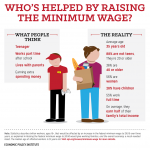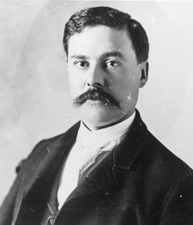Yesterday, I read a comment from a doctor who said that people living on minimum wage would not need to worry about the minimum wage if they had worked hard like he had and had gotten a good education. One specific thing he said was that they should “…study and educate yourself, and the world will pay you what it thinks your worth.” You know, because doctors are worth a lot. Fast food workers are not.
Then I discovered that he isn’t even a real doctor. So apparently his value is just in his ability to make money, because he is not going to be doing any life-saving surgery.
Last night, I read about a study which looked at the impact of poverty on cognitive abilities. Brady Dennis of The Washington Post reported the following:
The results showed that people wrestling with the mental strain of poverty suffered a drop of as much as 13 points in their IQ — roughly the same found in people subjected to a night with no sleep.
“Poverty is the equivalent of pulling an all-nighter,” said Harvard economist Sandhil Mullainathan, another of the study’s authors. “Picture yourself after an all-nighter. Being poor is like that every day.”Mullainathan said previous research often has assumed that poor people are poor because they are somehow less capable than others, whether inherently or because of past trauma or other environmental factors in their lives. But, he said, what the latest study suggests is that the strain of poverty can tax the cognitive abilities of anyone experiencing it — and that those abilities return when the burden of poverty disappears.
“While the poor may be experiencing a scarcity of money, at some level what they may really be experiencing is a scarcity of bandwidth, of cognitive capacity,” he said. “It’s the situation that’s creating the stress.”
Zhao and Mullainathan said that their findings, if accurate, could have profound implications for public policy.
For starters, policymakers “should beware of imposing cognitive taxes on the poor just as they avoid monetary taxes on the poor,” the paper states. Filling out long forms, deciphering complicated rules or undergoing lengthy interviews can consume scarce cognitive resources.
“You are captured by these monetary issues — how to pay rent, how to pay bills,” Zhao said. “As a result, you’re less attentive to other problems. You neglect other things in life that deserve your attention.”
The full study can be found here.
I have often wondered about this. I have felt that strain which comes from financial and economic stress. The impact of living with it everyday cannot be underestimated.
Is this something that our elites and law-makers understand? Clearly, most do not.












